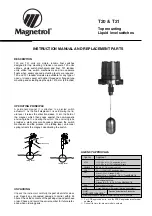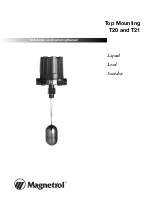
Chapter 8 Basic Setting
GS1350 Series User’s Guide
100
Figure 77
Basic Setting > Port Setup
The following table describes the labels in this screen.
Table 32 Basic Setting > Port Setup
LABEL
DESCRIPTION
Port
This is the port index number.
*
Settings in this row apply to all ports.
Use this row only if you want to make some settings the same for all ports. Use this row first to set
the common settings and then make adjustments on a port-by-port basis.
Note: Changes in this row are copied to all the ports as soon as you make them.
Active
Select this check box to enable a port. The factory default for all ports is enabled. A port must be
enabled for data transmission to occur.
Name
Enter a descriptive name that identifies this port. You can enter up to 64 alpha-numerical
characters.
Note: Due to space limitation, the port name may be truncated in some Web
Configurator screens.
Speed/Duplex
Select the speed and the duplex mode of the Ethernet connection on this port. Choices are
Auto
,
10-an
(10M/auto-negotiation),
10M/Half Duplex
,
10M/Full Duplex
,
100-an
(100M/auto-
negotiation),
100M/Half Duplex
,
100M/Full Duplex
and
1G/Full Duplex
(Gigabit connections only).
Selecting
Auto
(auto-negotiation) allows one port to negotiate with a peer port automatically to
obtain the connection speed and duplex mode that both ends support. When auto-negotiation
is turned on, a port on the Switch negotiates with the peer automatically to determine the
connection speed and duplex mode. If the peer port does not support auto-negotiation or turns
off this feature, the Switch determines the connection speed by detecting the signal on the
cable and using half duplex mode. When the Switch’s auto-negotiation is turned off, a port uses
the pre-configured speed and duplex mode when making a connection, thus requiring you to
make sure that the settings of the peer port are the same in order to connect.
















































